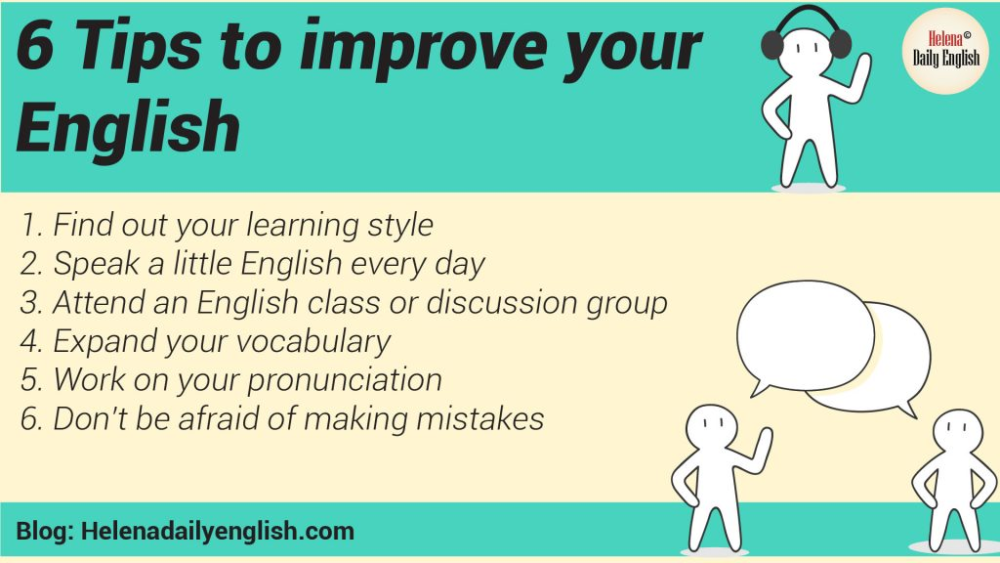Freelancing is becoming the go-to work option for professionals searching for flexible jobs that allow them to work conveniently. It may seem like an easy ride. But freelancing and working remotely come with a unique set of mental and financial barriers, especially if you’re looking to become an international freelancer.
But embarking on the journey to becoming a freelancer is an endeavor that’s well worth it. According to the recent ‘Freelancing in America’ study, 71% of freelancers say this work option allows them to work conveniently from anywhere in the world. This same set of respondents also say freelance work provides a simple avenue to earn some extra income.
The above paragraph is proof of the numerous upsides to becoming a freelancer. But you can take it one step further by landing international clients. And we’ll help you get there by discussing everything you need to know about landing jobs abroad and becoming an international freelancer.
Reasons to Consider International Freelance Work
You may be thinking, “I’m already doing well for myself on the local scene. Why should I go through the hassle of finding clients abroad and work as an international freelancer?”
Money Note: If an extra $1K–$5K/month would change your 2026 goals (debt, savings, travel, freedom), you’ll want to catch this: free live workshop from a freelancer who’s earned $4M+ online. No fluff. No gimmicks. A real roadmap. 👉 Watch the training or save your seat here »
A New Challenge
Things may become autonomous after freelancing for multiple years in a defined local niche. It starts to get relatively easy, routine even. At this point, it’s easy to get content with maintaining the status quo.
However, working as an international freelancer is quite a different matter. You’ll need to learn how to use tools like cloud calling and unified communications. It’s an opportunity for you to compete and challenge yourself in international circles.
Restart Your Creative Juices
International freelance work is an opportunity for a rare fresh start. Inevitably, you’ll start to learn new concepts and different ways to approach tasks in your field.
Learning something new always jump-starts the brain’s creative juices. The challenges of the international markets will stir up your creative outlets, helping you get better at your job and improving your output.
Increased Earning Potential
The average freelance worker improves their skill over time. Naturally, when you skill up, your rates also rise. And with expensive services comes an expected level of client satisfaction.
It can be difficult to overdeliver for local clients, especially if you’re too expensive. The good news is your freelance services can be expensive locally while remaining affordable abroad — thanks to differences in living and operational expenses.
Opportunity to Grow and Expand
Working freelance internationally invariably places you among the very best. This exposure will show you there’s no playing field in your niche that’s too big. The only limit is your technical skill.
Working with international clients will force you to improve and grow these technical skills. You can finally try some of those advanced marketing tools, techniques, and tactics, previously inaccessible to you.
Are There Any Challenges to Freelance Work With International Clients?
This guide to becoming an international freelancer would be incomplete without discussing the obstacles of this endeavor. Below are the challenges you’re likely to encounter on the road to landing clients abroad:
Starting from Scratch
Freelancers with multiple years of experience on a local level often become entry-level professionals in international markets.
Essentially, you’ll be starting from scratch when you start working in international markets. While the technical skills are not so different, the leverage and manner of adoption are usually poles apart. In essence, it’s a different ball game that’ll take you time to understand.
Lack of a Support Network
Working as an international freelancer will mean you no longer have access to your support network from previous freelance engagements. It’s a system you’ll have to build and curate for the specific international market.
For example, say a work project requires you to know what IVR means. If you don’t know what it means, the chances are high that your local support network doesn’t either.
The lack of a support network is no reason to balk from working internationally. After all, you’ve got to start from somewhere at the end of the day. You may have to invest time and other resources, but the results are well worth it.
Increased Competition for Clients
Clients in international circles have a wide net to cast in the search for top talent. Therefore, they usually have higher benchmarks in pursuing the best.
This is the big leagues, and you will be playing against the very best. You’ll compete with the best in your niche for the same jobs. This competition makes the search for jobs in international circles a difficult prospect.
Sure, it may seem scary, but you’ll eventually find the right clients if you remain consistent, provide value, and position yourself accordingly. You just have to be prepared to go the extra mile.
Working in English
The best jobs in international markets often come from English-speaking countries. For our readers who are already based in English-speaking countries, this isn’t a challenge. This particular obstacle becomes a factor when you’re a non-native English speaker.
Likely, you’re initially going to struggle with communicating in English. You may even encounter prospects who think you’re using voice phishing tech to scam them. That’s why it’s important to improve your English Language communication skills.

Unless you’re a content writer, in which case your status as a non-native English speaker may not be much of a problem. Therefore, we encourage prospective international freelancers to get comfortable with making the odd mistake and speaking English with an accent.
You’re good-to-go as long as your communication skills don’t affect your output. Plus, some tools can help you improve your command of the English Language.
Tips to Help International Freelancers Communicate with English-Speaking Clients
A personal tutor can help you improve your ability to read, write and speak in English. But you can stay one step ahead by using an online English Dictionary.
An online dictionary can help you discover related verbs, adjectives, and conjunctions commonly used with the word in your query. Advanced online dictionaries will explain the context and the right prepositions to use alongside the word.
For example, if you look up the word research, the tool will produce suggestions like detailed research, comprehensive, and in-depth research. This feature can be crucial when you’re not 100% sure how to use a word.
Another tip is to get familiar with functional phrases. These are phrases ideal for different scenarios.
For international remote work, you’ll need to get familiar with functional phrases for situations where you have to make a point, disagree, or provide information. Knowledge of these phrases can boost your learning curve.
Grammarly, an online spell checker tool, should be your best friend. The premium version has advanced functionalities like spell check, tone check, plagiarism check, and more. You can also integrate your Grammarly extension to work with your email and communication platforms.
Where to Find International Clients
The most common question about becoming an international freelancer has to do with finding your first clients.
Below are the channels to explore in your bid to land a client abroad:
Word of Mouth and Referrals
Telling people what you do and the type of clients you’re looking for will go a long way as an international freelancer. You don’t even have to speak directly with international contacts. Sometimes, stakeholders in your local industry may have credible international job contacts. Push those buttons, get on the phone and shake some trees – you never know what might fall.

Referrals are another option to pursue in the bid to land international clients. Deliver good work consistently to that client, and they’ll be more likely to tell others about your services. Of course, this strategy will only work after you land your first client.
Agency Partnerships
Pitching yourself to an agency offering bouquet services in your niche is always a great idea. Here, you’ll need to build your portfolio and resume. Send these documents alongside a pitch to previously identified agencies in your niche.
The best part about a successful partnership with an international agency is the steady stream of clients on offer. This agency is likely to have an effective marketing funnel that converts prospects to clients. And, you can just tap into it.
For example, a freelance SEO writer looking to land international clients will enjoy a partnership with a digital marketing agency. The marketing agency will attract clients looking to build websites and improve their content conversion numbers, and the writer gets a steady stream of clients who need content.
Check the Local Scene
Sometimes, the local scene may be a route to getting into international work. There may be companies in your country that dabble in international projects or have global products.
Working with companies of this ilk will position you for the international market. It’ll help you build a portfolio that proves your experience working on international projects. Plus, you can develop a network of contacts that you can leverage to land a client abroad.
Social Media
International clients looking for freelancers often start their search with the internet. This is only right seeing that it’s fast, free, and easy to access. Below are some of the social media platforms you should be looking to leverage.
An intentional, curated profile will help you build business connections on LinkedIn. Similarly, Human Resource staff and prospective recruiters use LinkedIn to search for full-time clients.
Optimizing your LinkedIn profile to include your name and location is another good idea. An updated LinkedIn profile is a great way to make a stellar first impression if international clients research your name before deciding to work with you.
Facebook is far more personal compared to LinkedIn. But it’s still useful as a platform to get international jobs. You can start by letting your friends on Facebook know you’re on the hunt for international freelance work.
You can also post your work, provide links to related articles, and post opinion threads on work-related subjects. This kind of content will widen your Facebook contacts and lead to new international clients.
Another option is to join Facebook groups where you can connect with local and international stakeholders in your industry. You can prove your value to other community members by providing helpful information and displaying expertise. This intentional positioning can help you land a job with an international client.
It’s important to assess your Facebook page if you’re looking to secure clients with it. Make sure your page isn’t home to any questionable or embarrassing material. Clients are likely to scan through your Facebook page before offering you a job. And, you don’t want a careless photograph or comment to impede your chances of an international job.
Professionals who work in visual industries like graphic designers, web designers, and photographers can benefit from showcasing their work on Instagram. Use features like Instagram Reels and Stories to describe your workflow, interesting projects, and creativity.
Freelancers looking to land a client abroad can use Twitter to develop valuable connections. Start by following international companies and clients you’d want to work for in the near future. This move will help you gain insight into their business and how they work.
You can also comment on their tweets, providing quality engagement that showcases your expertise. Doing so will put you on these companies’ radar, improving the chances of successful proposals.
Finally, Twitter is an avenue to cultivate a connection with other freelancers in the international industry. You can build relationships that increase your chances of a referral.
5 Proven Tips to Help You Land a Client Abroad
Harness the following strategies for your foray into the international job market:
1. Start with Marketplaces
Most freelancers look down on marketplaces because they often house jobs with introductory rates. But if you’re a local freelancer looking to start working for international clients, you may have to make do with entry-level rates for now.
Think popular marketplaces like Upwork, Fiverr, and Freelancer. These marketplaces make it simple to build a clientele of international clients. Plus, you can work your way into more lucrative gigs using feedback and testimonials from marketplace gigs.
2. Schedule Free Consultations with Prospective Clients
Don’t be too focused on signing that job agreement at the start of your sojourn into international waters. Instead, you want to build credible relationships with every stakeholder you encounter.
The best way to do this is to schedule frequent no-obligation consultations with your prospects. Use these conversations as a platform to listen to their pain points, empathize with their needs, and proffer possible solutions.
Even if the conversation doesn’t lead to a client, people are likely to remember you provided some form of value. They’ll seek out your services down the road.
3. Create a Target Customer Profile
You may be tempted to sign on any client that comes your way in the bid to land your first one. Instead, it’s better to be hugely selective with your client choice.
Thanks to your experience in the local industry, you probably have a preferred working model, brand, and customer strategies. Your international client must align with your values, visions, and service provision.
4. Brand Yourself
Run a fine-tooth comb through your experience in the local industry. This will help you identify the X factor that makes you unique among other freelancers in your industry.
What’s the differentiator between you and other competing international freelancers? What did your previous clients see that made them feel they had no choice but to hire you? The answers to this question should form the groundwork for personal branding efforts and your freelance marketing strategies.
5. Keep an Updated Portfolio
Mark out time to create a stunning portfolio of your skills and past work. It’ll be ready to go when you generate a great lead or apply to a promising job.
Constantly update your freelancer portfolio with details of your best work. Plus, ensure your portfolio is easily accessible to clients. You can leverage a personal website, online link, or a PDF format.
Here’s what you need to include in your portfolio:
- Be very clear about what you do. Specific titles like “Marketing Copywriter” make it easy for recruiters to match you to the ideal jobs.
- Include your best work. Your portfolio is an opportunity to showcase samples relevant to the job you want.
- Add reviews and testimonials from past clients. You can ask previous clients for a one-or-two sentence review.
- Attach your resume. Your resume should provide a snapshot of your background and previous qualifications. It should also include any previous full-time positions you’ve held.
- Include up-to-date contact information. Make it simple for prospective clients to work with you.
Find Your First International Client
Transitioning to international clients is never an easy prospect, even for experienced professionals. But with the tips and hacks above, you’re starting one move ahead. Good luck!
Keep the conversation going...
Over 10,000 of us are having daily conversations over in our free Facebook group and we'd love to see you there. Join us!




